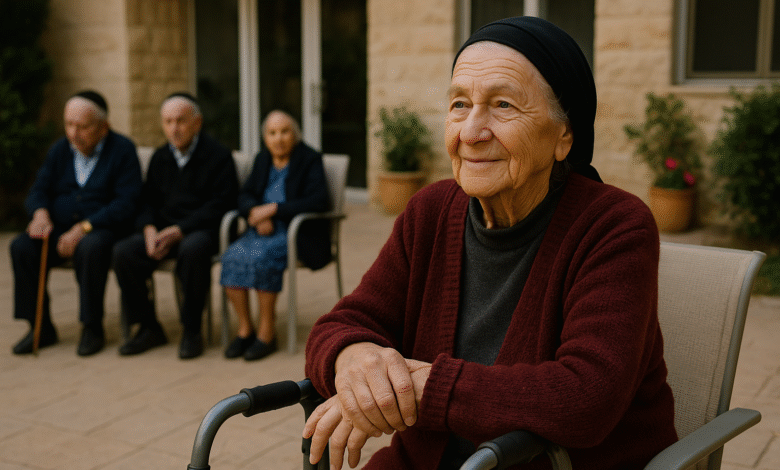Beit Bart: Compassionate Senior Home in Jerusalem Offering Faith, Care, and Community

Introduction
Beit Bart is one of Jerusalem’s most trusted senior care homes, recognized for its dedication to providing comfort, dignity, and faith-based support for the elderly. Established in the heart of the Baka neighborhood, Beit Bart has become a symbol of compassionate elderly care rooted in cultural and religious values. Families across Israel view it as a safe, nurturing environment where their loved ones can age gracefully while maintaining their traditions and spiritual connections.
The home has earned appreciation for its commitment to comfort and care, yet it also faces challenges typical of senior facilities — such as limited inclusivity and growing demand. This article explores every aspect of Beit Bart, including its background, services, strengths, challenges, and its evolving role in Jerusalem’s elderly-care system.
What Is Beit Bart?
Beit Bart is a senior residence in Jerusalem designed to serve elderly individuals who seek a secure, faith-aligned living environment. The establishment’s primary focus is to offer comfort and companionship while ensuring residents receive proper medical and emotional support.
Situated in the Baka district, Beit Bart reflects the traditions of the religious Jewish community. The atmosphere, meals, and routines are structured around cultural and spiritual practices. This approach helps residents preserve their lifestyle and values, making Beit Bart more than just a care facility — it is a community that respects identity and faith.
Services and Facilities of Beit Bart
Beit Bart provides comprehensive services that ensure physical comfort and emotional well-being. The residence offers daily kosher meals, clean and comfortable living spaces, professional medical supervision, and regular health monitoring. These essentials help residents live with dignity while receiving necessary care.
In addition to basic needs, Beit Bart organizes social and religious events. Residents can participate in holiday celebrations, prayer gatherings, and community programs that strengthen their sense of belonging. This balance between physical care and spiritual engagement sets Beit Bart apart from many other senior homes in Jerusalem.
Beit Bart Biography: Background and Growth
Beit Bart began with a vision to create a faith-centered home for the elderly in Jerusalem. Its founders aimed to ensure that aging individuals could continue to live according to their religious beliefs without compromising comfort or medical safety.
Over the years, Beit Bart has expanded its facilities and improved its programs. Today, it stands as a respected care home known for its culturally sensitive approach and professional service. Residents are not merely patients but members of a vibrant community. Daily prayers, shared meals, and traditional celebrations have turned Beit Bart into a place filled with warmth and togetherness.
Key Features of Beit Bart
-
Location: Baka neighborhood, Jerusalem
-
Focus: Religious Jewish senior residents
-
Core Services: Accommodation, meals, health care, religious observance, and cultural activities
-
Community Role: Trusted institution offering faith-aligned elderly care
-
Reputation: Known for compassion, though sometimes seen as limited in diversity
Positive Aspects of Beit Bart
The most notable advantage of Beit Bart is its strong sense of community. Residents share similar values, traditions, and faith, creating an atmosphere of comfort and mutual respect. This social harmony reduces loneliness and enhances emotional well-being.
Another positive factor is the facility’s respect for religious observance. From kosher meals to Sabbath routines, Beit Bart allows residents to continue their faith practices seamlessly. Families often choose Beit Bart because they know their loved ones will be cared for in an environment that aligns with their beliefs and daily rituals.
Challenges and Negative Aspects
Despite its reputation, Beit Bart faces several challenges. One concern is limited inclusivity. Its strong religious identity means individuals from different backgrounds may feel less welcomed, narrowing the range of residents who can comfortably live there.
Resource limitations are another issue. Like many senior homes, Beit Bart struggles with increasing demand due to Jerusalem’s aging population. Families sometimes express a desire for more staff and upgraded facilities to enhance personalized care and comfort.
The Role of Beit Bart in Elderly Care
Beit Bart plays a significant role in the broader elderly-care system of Jerusalem. It provides a reliable solution for families who cannot offer full-time home care. By providing professional assistance within a supportive community, Beit Bart ensures that the elderly maintain both safety and social connection.
Moreover, Beit Bart illustrates how cultural and religious identity shape care services. It demonstrates that elderly care extends beyond medical attention — it also includes emotional, cultural, and spiritual well-being. The success of Beit Bart highlights the growing demand for care models that respect personal and religious values.
Why Families Choose Beit Bart
Families prefer Beit Bart because it combines professional care with spiritual continuity. Elderly residents can practice their faith daily while enjoying comfort, companionship, and security. This emotional and religious harmony is what makes Beit Bart a preferred option among observant Jewish families.
Its central location in Jerusalem is another major attraction. Being close to sacred sites and cultural landmarks allows residents to stay connected to the city’s spiritual essence, enhancing their emotional satisfaction and sense of belonging.
Criticism and Public Perception
Public opinion about Beit Bart is balanced between admiration and constructive criticism. Supporters praise the home’s community spirit, compassionate care, and respect for tradition. Many testimonials highlight the joy and peace residents experience in their later years.
However, critics point to the need for modernization and inclusivity. They argue that expanding Beit Bart’s reach to accommodate a more diverse group of elderly individuals would strengthen its social impact. Upgrading medical and recreational facilities could also improve its standing as a leading senior home in Jerusalem.
The Future of Beit Bart
Looking forward, Beit Bart has significant potential for growth and improvement. By investing in modern healthcare technologies, expanding staff training, and upgrading living spaces, it can enhance its residents’ quality of life.
Equally important is the possibility of increasing inclusivity while maintaining its faith-based identity. By opening its doors to a broader audience, Beit Bart can serve as a model for combining cultural tradition with modern, inclusive elderly care practices. The future of Beit Bart depends on how effectively it balances these values — faith, community, and progress.
Conclusion
Beit Bart stands as a trusted and respected senior residence in Jerusalem. It successfully combines faith, compassion, and professionalism to provide a fulfilling life for elderly individuals. Its commitment to cultural and spiritual values ensures that residents experience not just care, but belonging.
Yet, challenges such as limited inclusivity and resource constraints remind us that even established institutions must evolve with time. Overall, Beit Bart remains an inspiring example of how senior care can be both compassionate and culturally grounded — a true home that cherishes dignity and faith in every stage of life.
Frequently Asked Questions (FAQ)
1. What is Beit Bart?
Beit Bart is a senior home in Jerusalem offering housing, medical care, meals, and religious activities for elderly individuals, especially from the observant Jewish community.
2. Where is Beit Bart located?
Beit Bart is situated in the Baka neighborhood of Jerusalem, a well-known residential and cultural district.
3. Who can live at Beit Bart?
The residence mainly welcomes elderly individuals who wish to live in a religiously observant environment. Admission policies are typically discussed directly with the management.
4. What services does Beit Bart provide?
Beit Bart provides accommodation, health care, kosher dining, prayer gatherings, and social events that encourage community engagement and well-being.
5. What are the pros and cons of Beit Bart?
Pros include faith-based care, strong community bonds, and compassionate service. Cons involve limited inclusivity and occasional strain on resources due to rising demand.



